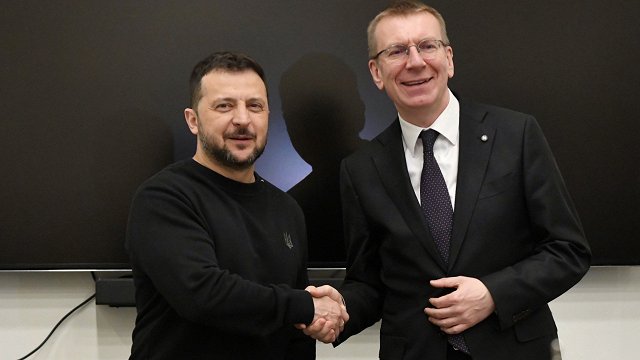“The combination of substantial Russian minorities (which constitute a majority in some areas) and the influence of the Russian media could make Estonia and Latvia in particular vulnerable to the type of information warfare and inciting of disturbances that have caused such chaos in Ukraine,” the Commons Defence Select Committee warned.
“The Baltic States are vulnerable to Russian pressure over trade and energy supplies to varying degrees,” the committee said, citing evidence given to it by The Economist's veteran Russia-watcher Edward Lucas.
“One thing we should be on the alert for, for example, would be Russian attempts to destabilise the Baltic States' economies. Are we ready to come in, protect trade and investment there and counter that? That is not really a NATO task, but the first thing to do if you were weakening the Baltic states would be to attack one of them with trade sanctions, blocking the east-west transit flows or things like that, knocking a few percentage points off GDP, sending unemployment up and putting them in a recession,” the report said.
Pressure may be exerted on the Baltic states in a number of ways which fall outside of NATO's remit"
“Pressure may be exerted on the Baltic states and other countries by Russia in a number of ways which fall well outside of NATO's remit, including over trade and energy supplies” and using cyber-attacks similar to those experienced by Estonia in 2007, the report warned.
September's NATO summit to be held in Wales should address a number of new issues including whether cyber-attacks on NATO member states should provoke the same watershed 'Article 5' response as a conventional armed attack.
The committee also recommended a number of additional measures including “the appointment of additional Defence Attachés to cover the Baltic States” and “the deployment of forces at least to divisional scale to Poland and the Baltic States via Germany” by the UK and US.
There should be “a continuous (if not technically 'permanent') presence of NATO troops, on training and exercise in the Baltic” and the establishment of a new NATO headquarters to focus on Eastern Europe and the Baltic.
However, it should be noted that UK parliamentary committees only have the power to investigate and recommend, not to legislate. Whether and to what extent the report is acted upon is a decision for Prime Minister David Cameron and his government.
A written response by the UK government to the committee's recommendations is usually given within two months.
Some of the most dramatic testimony to the committee came from General Sir Richard Shirreff who outlined a worrying scenario of Russian troops mounting an airborne invasion of the Baltics.
Unless NATO has stationed forces in the Baltic states, I think it is highly unlikely that NATO could respond quickly to a sudden, surprise attack"
“I think NATO would find it very difficult to respond sufficiently quickly if, for example, Russia decided to attack and mount an airborne descent operation, for example, on Riga, Tallinn or Vilnius,” General Shirreff said.
“The fact is that there is a Russian aviation base within 40 minutes' flying time of Riga so, unless NATO has stationed forces in the Baltic states, I think it is highly unlikely that NATO could respond quickly to a sudden, surprise attack. That said, if there was a build-up of tension and relatively clear indications and warnings—which is, I think, highly unlikely—NATO could begin the process of preparing to defend those Baltic states against Russia. However, the honest answer, as we speak now, is that NATO would be very pushed to respond sufficiently quickly in the event of a sudden surprise attack.”




























